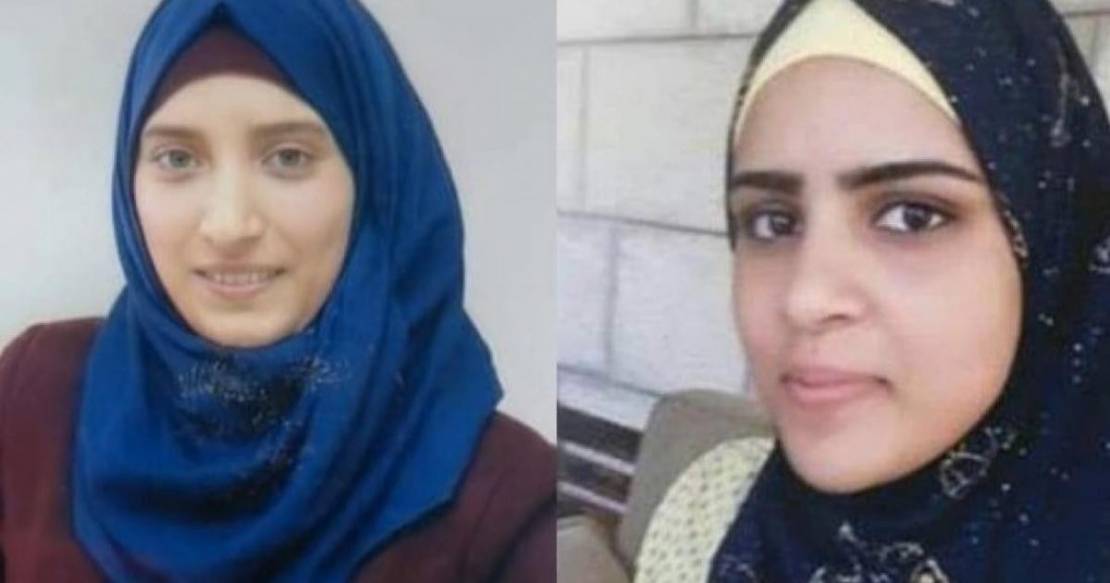
On Wednesday, 22 December, Marah Bakir and Shorouq Dwayyat were released from isolation and returned to their rooms in the Palestinian women prisoners’ section of Damon prison. Mona Qaadan had earlier been returned to her section. Both Bakir and Dwayyat, the elected representatives of the women prisoners, had been transferred away from Damon prison and held in solitary confinement by Israeli occupation forces in retaliation for their defense of Palestinian women prisoners’ rights. Palestinian prisoners’ organizations also reported that the women’s electronic devices, such as cooking tools, were returned. This marks an accomplishment for the Palestinian women’s resistance and the Palestinian prisoners’ movement, obtained through struggle and action.
Of course, the struggle is not over. Palestinian women continue to be denied family visits and other necessities. Click here to send a letter to the ICRC demanding they take action to uphold Palestinian women prisoners’ rights.
Both Bakir and Dwayyat, along with their fellow women prisoners, were attacked on multiple occasions by repressive units invading their sections. Palestinian women political prisoners have been denied family visits for over three months, they are subjected to security cameras in the halls and the prison courtyard, and unhealthy, humid conditions in the winter with insufficient heating and blankets. Women prisoners, including Israa Jaabis, who suffers from severe health issues and injuries, are denied appropriate medical care. The repressive forces invaded the women’s cells and attacked them, turning off the electricity and pulling the hijabs from several women’s heads. The women had refused to be suddenly transferred from cell to cell after 9 pm at night when the repressive forces attacked them.
The assault on the women prisoners and the isolation of Bakir, Dwayyat and Qaadan was met with an outraged response from the Palestinian people, their resistance organizations and the prisoners’ movement. The women prisoners closed their sections and returned their meals, while three women prisoners — Nurhan Awad, Maysoon Musa al-Jabali, and Shatila Abu Ayada — launched an open hunger strike on 21 December to demand the return of their colleagues.
In Nafha prison, one Palestinian prisoner, Yousef Mabhouh, physically confronted and wounded an Israeli occupation jailer in protest of the abuse of the women prisoners. Throughout the Israeli occupation prisons, Palestinian prisoners returned their morning meals on Wednesday to demand that Bakir and Dwayyat be released from solitary confinement, that Hisham Abu Hawash, on hunger strike for 128 days, be freed from imprisonment without charge or trial, and to stop the attacks on Palestinian prisoners in Nafha prison by repressive units. Palestinian resistance organizations also declared their full support and readiness to mobilize in defense of the prisoners.
Samidoun Palestinian Prisoner Solidarity Network salutes the Palestinian women prisoners and the Palestinian prisoners’ movement as a whole and their ongoing resistance and leadership. The return of Dwayyat and Bakir to their sections and the restoration of the prisoners’ belonging is a material achievement that shows that the prisoners’ resistance wins. However, the struggle is still not over — to obtain the demands of the prisoners and their liberation. We urge all international supporters of Palestine to take action to support imprisoned Palestinian women in their struggle for justice — until the liberation of Palestine, from the river to the sea.
Discover more from Samidoun: Palestinian Prisoner Solidarity Network
Subscribe to get the latest posts sent to your email.




